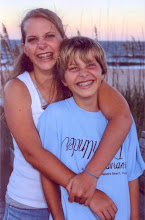Yeats' relationship with Maud Gonne was not what Yeats yearned for it to be. Though he proposed to her several times, he was always turned down. Gonne is the inspiration of most, if not all, of Yeats' poems that describe a woman of beauty. Yeats' poem "No Second Troy" could also refer to the war he constantly fought with himself over Gonne and his everlasting, unrequited love for her. The speaker in the poem struggles with not blaming the woman for the war being fought; it is not her fault she is so beautiful, yet the question at the end, "Was there another Troy for her to burn?" (line 12) indicates that maybe the first war she caused, the first city she caused to be burned is not enough for her.
Sunday, June 22, 2008
William Butler Yeats
Two of William Butler Yeats' poems are written about his muse Maud Gonne, and use references to the Trojan War. His "No Second Troy" celebrates her beauty and at the same time shows how her beauty has "taught to ignorant men the most violent of ways" (line 3). The other poem "Leda and the Swan" depicts the rape of Leda by Zeus which gave birth to Helen in Greek mythology. Both poems use eloquent imagery, the first poem uses it to show the beauty of Helen and the horrors her beauty causes; the second poem uses the rape of her mother to foreshadow the destruction Helen's birth and beauty would eventually cause.
Subscribe to:
Post Comments (Atom)

1 comment:
Rachel,
Good discussion of Yeats's handling of Maud Gonne in two of his poems. He was definitely obsessed with and greatly influenced by her, and I agree that both these poems refer to her. The post seems a bit brief in its treatment of either of them, though, and doesn't fully explore either text. I think it might have been better to focus on one poem and devote your full attention to it.
Post a Comment